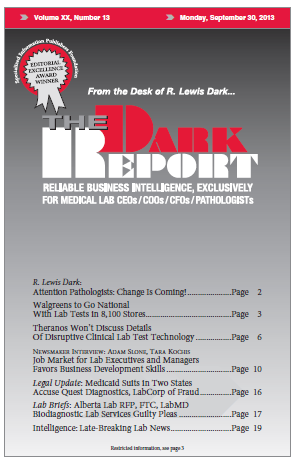CEO SUMMARY: A disruptive innovation is one that shakes up an entire market or industry. By adding clinical lab testing to its health services offerings in more than 8,100 stores nationwide, Walgreens could disrupt the status quo in the clinical lab industry. Walgreens says its lab partner will offer testing at prices that are less …
Walgreens To Go National with Lab Tests in Stores Read More »
To access this post, you must purchase The Dark Report.


